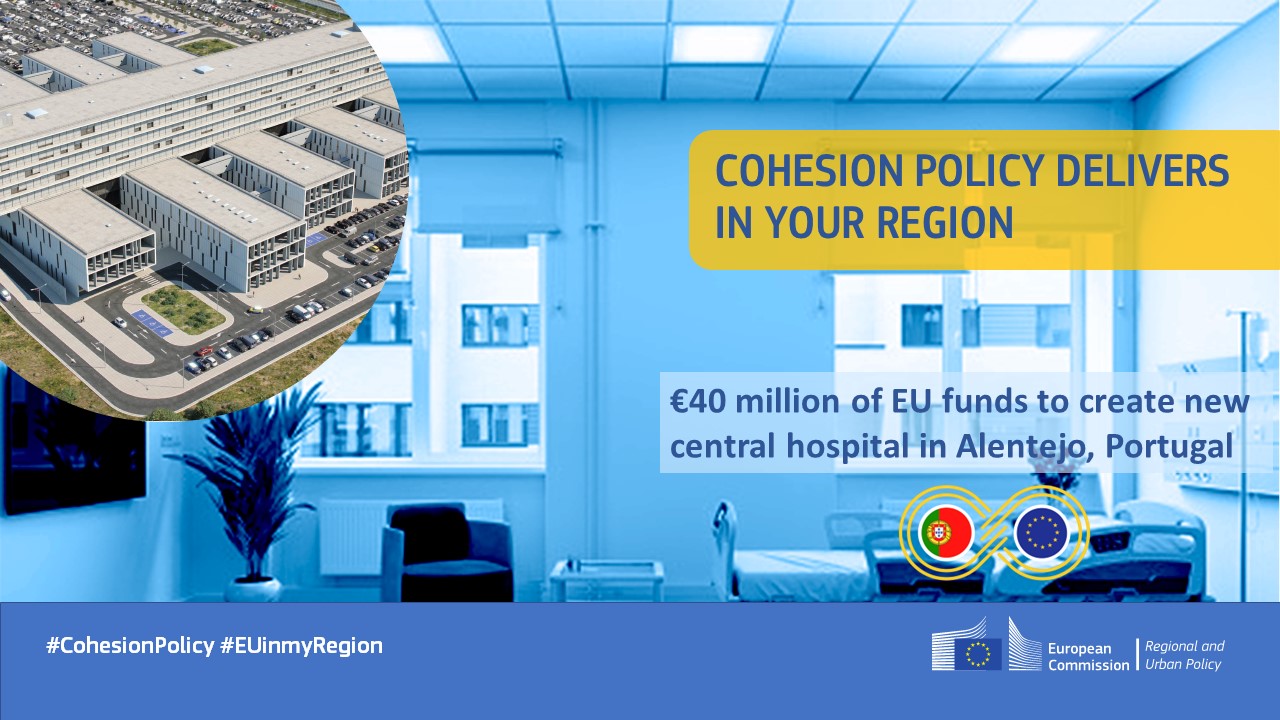More than €40 million from the European Regional Development Fund (ERDF) will finance the construction of a new state-of-the-art Alentejo Central Hospital in Évora, Portugal, overall improving access to high-quality healthcare services for some 470 000 people living in the region.
- 23 January 2024

The new building, funded from the Alentejo Regional Operational Programme for the 2014-2020 programming period, will replace the current Hospital do Espírito Santo de Évora (HESE). The modern space will serve as the main hospital for the central area of the Alentejo region, eliminating the need for patients to travel long distances for treatment and emergency care.
The hospital will house 130 consulting rooms and 67 places for day patients, representing an increase of around 35% and 50% respectively compared with facilities currently available at HESE. There will be 360 in-patient beds available in individual rooms, with the possibility of increasing this to 478 beds in an emergency by converting single rooms into double rooms. The hospital’s surrounding area will also be adapted to include two new roads, footpaths and cycle paths, to connect the hospital to nearby transport routes.
Commissioner for Cohesion and Reforms Elisa Ferreira said: “Thanks to Cohesion Funds, this project will enhance quality of life for many Europeans by improving access to healthcare for some 470 000 people, which will improve prevention, early detection, and treatment of diseases. A better healthcare facility with better working conditions for staff and may also attract healthcare personnel, new residents, visitors, businesses, and educational organisations to the region, overall boosting the local economy and creating jobs.”
The hospital also marks an important step in reducing CO2 emissions as it will enable patients to receive treatment locally, therefore limiting travel times and distance. Emissions will be further reduced thanks to a zero-emission ambulance fleet and the state-of-the-art design of the building, which will include renewable energy sources to produce hot water, energy-saving medical equipment, and the use of air conditioning monitoring equipment to optimise their energy efficiency.
More information
More information on EU-funded projects in Portugal available here.
